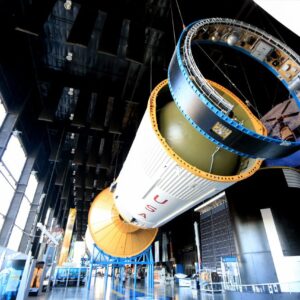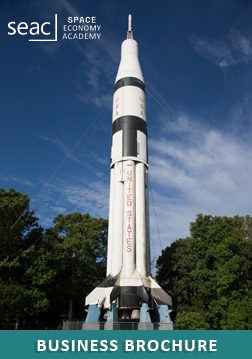Author: Elena Galletti
For the successful application of Knowledge Management (KM) initiatives within an organization, it is necessary to create enabling conditions by shaping the company culture so that it fosters such initiatives. This must be done by intervening at various levels, from the definition of the organizational culture to the continuous motivation of the employees to participate in knowledge creation and knowledge sharing. One of the levels on which top management should give a strong focus to, is the process of recruitment and selection of future employees.
As a matter of fact, values and elements of culture that support knowledge management can hardly be instilled in the employees unless their personal culture is aligned, at least to some extent, with the organizational culture. Turning specifically to the space industry, it is remarked that the industry represents a very good candidate for the successful application of KM tools, thanks to a number of factors. First of all, as many other high technology industries.
It is intrinsically provided with an advanced technological infrastructure that can facilitate the use of KM tools.
Moreover, the personnel is typically highly qualified and has a scientific or engineering background, and as such it does in general value knowledge creation and sharing as this is fundamental to the effective advancement of science. Under these premises, one can tailor the actions that should be taken at recruitment level for creating the conditions for successful KM to the specificity of this sector.
One of the first points to be considered is that selection boards should look to recruit and hire employees whose culture is to some degree in sync with the organizational culture. If one looks at the elements of culture that most favour KM success, it is possible to identify some that are quite common to observe within the space industry, and should therefore become a strict requirement for prospective employees. Some other are more difficult to find, and could therefore be kept as nice-to-haves, but at the same time become assets for those who possess them. One factor to account for, for example, is that in the space sector much more than in others projects can be very complex, geographically dispersed and multi-disciplinary, with big international teams required to coordinate on several levels. For an employee to be successful in this type of environment, he or she must have strong teamwork and cooperation skills.
This is the type of skill that could become a necessary requirement for space applicants, and which recruitment could easily assume to have found if the candidate has previous experiences in complex big international projects and/or has worked in different countries. Another value that is quite common to find within the space sector is a pro-innovation attitude, as most employees have a scientific or engineering background. Selection boards could then look for elements of creativity, focus on learning and competences creation among the available profiles, and consider them as a must-have. These elements could be for example identified if the candidate has experience in research, or is actively working on his or her formation through online courses, workshops, or similar activities. On the other hand, an example of characteristics that are not so common to find in applicants working in the space sector, and should therefore be regarded as an asset if they are detected, are the tolerance of uncertainty and changes and the willingness of taking risks.
It is generally recognised that the space sector can be quite conservative in some aspects, as the technology used must have a certain degree of readiness before it is flown into space, which can slow down the introduction of new technologies into space systems. On top of this, it is still a pretty institutionalised sector, meaning that many employees only have experiences in big or medium companies with enduring expertise, or in the institutions themselves.
In this context, elements of readiness to introducing change, embracing risks and timely implementing lessons learnt can be more difficult to find and considered an asset.
They could be associated for instance to entrepreneurship experiences or working in a start-up or New Space company. Individuals with this kind of background could contribute significantly to KM-oriented culture.
Another recruitment action that contributes to creating the conditions for KM is exclusively hiring those candidates that present the desired knowledge, relevant experience and abilities. This stems from the fact that having a well-structured team where all the necessary team roles are covered fosters good cooperation and effectiveness, and communication and flow of knowledge come naturally.
Moreover, hiring only candidates that fit the pre-defined employee profile is the only way to ensure effective knowledge creation, as the employee will be able to contribute with his or her knowledge and skills, as well as knowledge sharing, as having hired the right person for the job helps creating a climate of trust and confidence in each other’s work and consequently promoting communication and sharing among team members. In many occasions and given the high specificity of the required positions, the space industry suffers a lack of availability of such highly specialized profiles, which might push recruiters and managers to adjust their expectations.
This can be dangerous and affect the team’s success both in terms of quality of work and of communication and knowledge sharing. While this type of situation should clearly be avoided, it is acknowledged that many times it is just not possible. A potential solution to this could be the more frequent introduction of training periods at the beginning of the assignment, to make sure the lacking areas are given visibility and at least partially compensated for. From a KM perspective, this not only gives the chance to make the candidate better fit the job role, but also initiates a positive dynamic of learning and sharing, and of continuous motivation and challenges.
To conclude, there exist many selection instruments available to recruitment teams to ensure that the employee fits the organization culture as well as the specific job description. Two fundamental aspects are on the one side correctly reading into the candidate profile those elements that could reflect the organization’s values, whether they are common to find or rare assets, and on the other side only hiring when the fit to the role is ensured, in order to promote healthy and effective work dynamics and communication. In the space industry, the correct application of this is vital to fully exploit the sector’s predisposition to effective KM.




